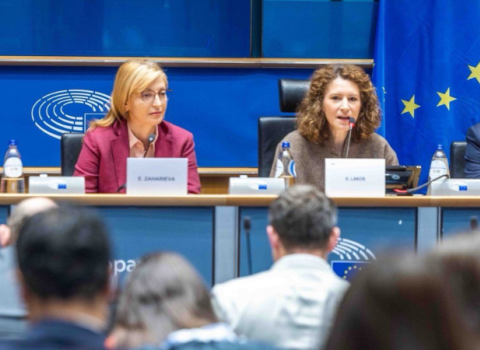UK space technology that is being developed to explore other worlds could soon be benefiting us on ours, with the launch of the UK Space Agency’s new knowledge exchange programme.
The UK Space Agency is making available a total of £700k to fund proposals to develop technology from Europe’s Aurora programme into terrestrial applications that can benefit society and the UK economy.
Dr David Williams, Chief Executive of the UK Space Agency, said, “Most people don’t realise that space technology is all around us and most of us use space technology every day. The Aurora programme has already produced many impressive spin-outs and we intend to further this success with our new knowledge exchange programme. The UK Space Agency is dedicated to the promotion of technology transfer from space missions that can benefit the UK’s economy and can continue making people’s lives easier and safer.”
Aurora is a European Space Agency (ESA) programme for long-term European involvement in the exploration of our Solar System. The UK Space Agency funds the scientists and institutions that are part of the UK Aurora programme and helps deliver a number of important benefits, providing a strong cross-disciplinary science and technology base, developing a highly-skilled workforce and delivering economic impact through technology spin-outs. It also encourages partnerships between industry and academia and helps attract young people into science and engineering.
Initially focusing on the Moon and Mars, the first major element of Aurora will result in the ExoMars rover landing on Mars in January 2019. Understanding the conditions that could have supported life on Mars is an important step towards addressing one of mankind’s most fundamental questions: are we alone in the Universe? By answering this question, the UK Space Agency can also deliver its vision to maximise the impact of our knowledge, skills, facilities and resources for the benefit of the United Kingdom and its people.
The Aurora programme has already resulted in many innovative patents, commercial applications and unforeseen benefits, ranging from human mobility to environmental resources. Current ExoMars spinouts include technology to clean and extract oil deposits in less time and using less water than current methods; state-of-the-art technology that could vastly reduce the time needed for water recycling; advanced medical diagnostics technology that can detect the presence of diseases, antibodies and molecular pollutants, leading to a number of possible uses within the medical and environmental sectors, as well as security applications through detecting illicit drugs and chemical or biological agents; and new smart devices that will allow people with reduced mobility to remotely request transportation for themselves and their goods at airport terminals.





 A unique international forum for public research organisations and companies to connect their external engagement with strategic interests around their R&D system.
A unique international forum for public research organisations and companies to connect their external engagement with strategic interests around their R&D system.